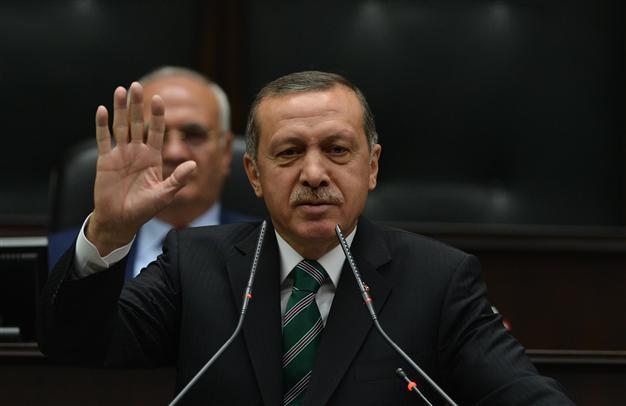Erdoğan vows to end ‘under-the-counter’ prep schools system, signals imminent draft
ISTANBUL

The Turkish prime minister has confirmed that a draft bill on education was imminent. AA photo
The test prep schools system in Turkey should change as it favors “rich families in urban centers,” Prime Minister Recep Tayyip Erdoğan has said, making clear that the government will not back down from an extensive education reform.During a live interview with the private broadcaster A Haber on Nov. 20, Erdoğan brushed aside the criticisms regarding reports that the government was seeking to close the private examination prep schools, affirming that they would “end the under-the-counter dershane institutions.”
While announcing that the new draft bill was set to be prepared for the next cabinet meeting, Erdoğan described the harsh reaction of the Islamic Scholar Fethullah Gülen’s Hizmet (Service) Movement against the move as “ugly.” He added that the change in the educational system had been on the government’s agenda for almost 10 years.
“The headlines given to newspapers even before the draft was submitted to us were very ugly. A headline describing a ‘night raid’ is not something that we [can easily accept]. There is nothing yet submitted to the Parliament. And this is not a new issue,” he said, reiterating the proposal already expressed by the education minister on converting the test prep institutions into private schools.
“If you have a surplus of teachers, send them to us. We employ them in public schools through only an interview [test]. You refuse this, then let’s give you land, cut-rate credits. Make you discounts on taxes and energy consumption prizes. Why are you so much against private schools and you want dershanes at any price?” Erdoğan asked.
Daily Zaman, which first reported the story, had compared the reform with military coups. Education Minister Nabi Avcı had already expressed his discomfort towards the Hizmet movement’s criticisms. Gülen’s movement operates a number of such institutions in Turkey, which Erdoğan evaluated as 25 percent of all dershanes during the live interview.
Erdoğan claimed that far from reducing the social gap between the uneducated, impoverished and rural segments of society, the dershanes served students who were already going to the best schools, favoring those with more means to prepare better themselves for the university entrance exams.
“If the dershanes are enough, so why do we need schools? Their fees vary between 2,000 and 20,000 liras [per year]. It may rise some more. Let’s say they enroll four students each. Now they even created VIP dershanes,” Erdoğan said, criticizing the increase in the number of the prep schools.
“You take students who have been educated in public schools, give them a little test technique teaching and then [claim the student’s success] when he wins a university place. Why can’t the poor go to these lessons? All those who benefit from them are the children of the rich,” he said.
Erdoğan also added that the reform would prevent students going to their schools on weekdays and to dershanes at weekends. “We don’t want our kids turn into competition horses. They should spend more time with their parents or relatives,” he said.
Amid the row about dershanes, Deputy Prime Minister Bülent Arınç, a figure close to Gülen, has announced an upcoming visit to the United States although he said he would not meet with the Islamic scholar. “The current situation is not suitable for that in terms of the political dimension,” Arınç said, referring to the tension.
















